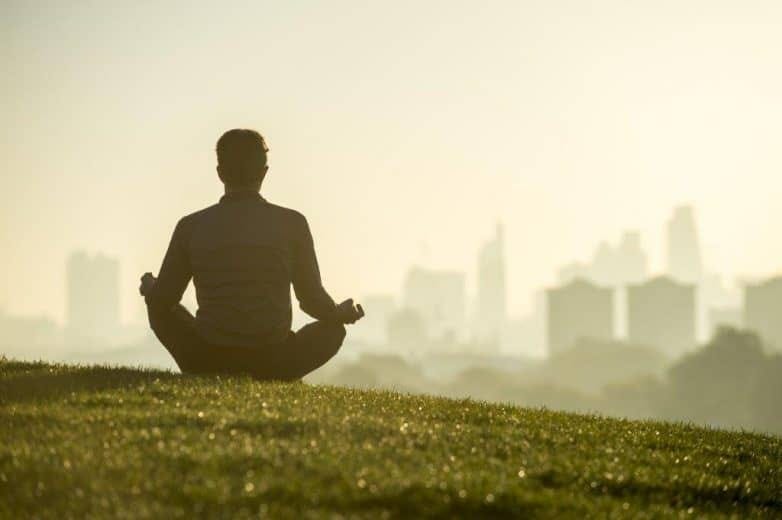Mindfulness at the End of the World
When Amazon is setting up meditation booths in its warehouses, does mindfulness have a use anymore?
This story is by Adam Willems, a Seattle-based freelance writer/reporter covering religion and technology.
Mindfulness has become mainstream: meditation apps proliferate on our phones; influencers encourage us to take five minutes to breathe and let go of our days. But to philosopher Sahanika Ratnayake, mindfulness is a silent epistemic threat. She confronted a creeping sense of estrangement from her emotions and sense of self after regularly practicing mindfulness in graduate school, and eventually re-applied to other PhD programs to make sense of her experiences.
Ratnayake’s findings led her to sit with the core assumptions of Buddhist thought. Mindfulness may label itself as unthreatening—largely thanks to secularizing evangelists like Jon Kabat-Zinn as well as the runaway success of apps like Headspace and Calm—but the practice is invariably a product of its source code, namely the Buddhist doctrine of anattā, or “no-self.” The tenet denies the metaphysical category of the self or any notion of a soul, or spirit, or individual identity.
“With the no-self doctrine, we relinquish not only more familiar understandings of the self, but also the idea that mental phenomena such as thoughts and feelings are our own,” Ratnayake explains in an essay for Aeon. “In doing so, we make it harder to understand why we think and feel the way we do, and to tell a broader story about ourselves and our lives.” This subtle divorce from wider contexts further feeds into the individualization of mental healthcare, which constrains our responses to societal fuckery. Through naming and letting go of emotions, foregrounding transience and detachment, practitioners of mindfulness may enhance their capacity to tolerate the stresses of capitalism—but only for so long.
Ratnayake's Aeon article went viral when it was published in 2019; a slew of hot-take responses followed. With those second-order pontifications in mind, and with some time and distance, Ratnayake returned to her arguments on mindfulness, centering the roles of Orientalism and capitalism in shaping milky defenses of “authentic” mindfulness.
****
Adam Willems: I’m wondering how you’ve personally approached mindfulness since your Aeon piece.
Sahanika Ratnayake: I’ve avoided it, really, not least because it would be the height of hypocrisy! Insofar as I’ve looked into meditative things, it’s not been mindfulness, and it’s been things like mild hypnosis where people talk to you as you’re falling asleep.

